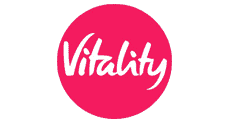When is it safe to switch health insurance provider?
Written By: Stuart Hendy
When is it safe to switch health insurance provider?
If your health insurance renewal price is high, it’s an ideal time to consider switching providers. In this guide, we’ll explain when it’s safe to switch your private health insurance and how to make the switch if you’re unhappy with your current provider.
Get Tailored Health Insurance Quotes from Top UK Insurers
If you’re eligible to change your health insurance, we’re here to help. Don’t miss the chance to get a better policy. Let us guide you through the process and find options that might offer more benefits or savings for you.
Should I Switch Health Insurance and When?
Health insurance is a critical safety net, but your current plan may not be the best fit for your needs. Whether it’s about cutting costs or finding better coverage, many people wonder: Should I switch health insurance? And, more importantly, When is the right time to switch?
Switching your health insurance can be a smart move, but it’s essential to weigh the pros and cons carefully. In this article, we’ll dive into the reasons for switching, when it’s best to make the change, and how you can save money.
Why should I switch health insurance?
There are a number of reasons why you might want to switch your health insurance provider. Below are the most common factors that prompt people to make a change:
- Lower Premiums
One of the biggest reasons to switch is to reduce your premium costs. In fact, up to 40% of policyholders who shop around save money. For example, Vitality and Aviva offer discounts for switchers. Aviva, for instance, provides a 10% discount if you move your policy to them from another insurer. - Better Coverage
Your current plan may no longer meet your health needs. Switching can give you access to improved hospital networks, better mental health support, or enhanced cancer care. This is especially important if your circumstances have changed, like starting a family or experiencing a serious illness. - Customer Service
If you’ve had negative experiences with your current insurer, such as slow claims processing or poor communication, switching to a provider known for excellent customer service could improve your overall experience. - More Incentives and Benefits
Some insurers offer added perks like gym discounts, wellness programs, or cashback on healthy living products. Vitality, for example, provides wellness incentives that can be a valuable addition to your health insurance package.
When is the best time to switch health insurers?
Safe
If you haven’t made any claims or experienced medical issues in the past five years, it’s likely safe to switch health insurers without complications and potentially save up to 38% on your renewal premium.
Think
You’ve made claims or had medical conditions in the past five years. You might have some exclusions, so your broker may suggest switching to a plan with different terms to ensure you’re covered for your conditions.
Wait
You’re currently making claims and receiving treatment through your health insurance. Although you may find savings on your premium, the new provider might impose exclusions. It’s advisable to wait.
It’s advisable to consult with your broker in all three cases to ensure you’re making the best decision.
When is the best time to switch health insurance?
Timing is crucial when switching health insurance. Here are some optimal times to consider making the switch:
1. At renewal time
The easiest and most cost-effective time to switch is close to your policy’s renewal date. This is when your current premium might increase due to age, claims, or medical inflation. At this point, you can compare other providers and avoid cancellation fees. Research shows that switching at renewal can save policyholders between £250 and £500 annually on average.
2. When you haven’t made a claim
If you haven’t made any claims on your current policy, switching can be straightforward. Many insurers offer a process called “continuation of cover,” meaning they’ll carry over the terms of your old policy without new exclusions. This is particularly useful if you have pre-existing conditions that are covered by your current policy.
3. After major life changes
If your health or personal circumstances have changed—such as getting married, having children, or nearing retirement—you may need a different type of coverage. Switching to a more suitable policy at these points can ensure you’re getting the right level of care for your situation.
How much can you save by switching your health insurance policy?
Switching health insurance providers can lead to significant savings. Depending on the provider, savings can range from 5% to 20% on your premiums.
| Provider | Discount for Switchers | Additional Benefits |
|---|---|---|
| Vitality | Up to 10% | Wellness incentives like gym and cinima discounts, apple watch incentives etc |
| Aviva | 10% | Broader hospital networks, you pay for the first child only, the rest is free. |
| Bupa | Up to 15% | Mental health support, Central London hospitals for kids |
Example: If your current premium is £1,000 annually, switching to Aviva or Vitality could save you £100 to £150 per year, while potentially improving your health insurance plan
Underwriting Options When Switching Health Insurance
When switching health insurance providers, it’s important to understand your underwriting options. Underwriting affects which pre-existing conditions are covered and can influence your decision to switch.
Moratorium Underwriting
With moratorium underwriting, pre-existing conditions are generally excluded unless you’ve been symptom-free for two years. This is the default for many policies. If you switch to this option, the new insurer may continue to exclude any pre-existing conditions you had in the past five years.
Full Medical Underwriting (FMU)
Full medical underwriting means you disclose all medical conditions when you apply for the policy. The insurer will decide which pre-existing conditions are excluded. If you switch to a new insurer with FMU, your new policy will likely come with exclusions based on your medical history.
Continued Moratorium Underwriting (CMORI)
If you’ve already served part of your moratorium period, you may want to choose Continued Moratorium Underwriting. This allows you to keep your existing terms without restarting your moratorium. It’s like carrying over your no-claims bonus in car insurance.
Continued Personal Medical Exclusions (CPME)
This option allows you to keep the same exclusions from your previous policy without adding new ones. It’s useful if you have chronic conditions that require ongoing care, like knee issues or heart conditions.
| Underwriting Option | Best For | Considerations |
|---|---|---|
| Moratorium | People with no recent medical treatments or conditions | Pre-existing conditions may be excluded |
| Full Medical Underwriting | Those wanting clarity on what’s excluded upfront | People who have served part of their waiting period, also known as a rolling moratorium. |
| Continued Moratorium (CMORI) | People who have served part of their waiting period, also known as rolling moratorium. | Helps maintain continuity for previous exclusions |
| Continued Personal Medical Exclusions (CPME) | Those with ongoing conditions needing continuous cover | Ensures pre-existing conditions continue to be covered |
How to Switch Health Insurance Providers
Switching can be a smooth process if you follow the right steps. Here are two options for switching your health insurance policy:
Option 1: Speak Directly to the Insurer
You can directly approach a new health insurance provider to compare policies and get a quote. This can be a quick and direct way to switch, but you’ll need to do your own research to make sure you’re getting the right coverage at the best price.
Steps to Follow:
- Get Quotes: Contact your current insurer and potential new insurers to request quotes.
- Compare Coverage: Make sure to compare the coverage levels, hospital lists, and benefits, not just the price.
- Negotiate: Present any lower quotes to your current provider. Many insurers are willing to lower your premium to retain you as a customer.
Option 2: Use a Health Insurance Broker
If you’re unsure about navigating the complexities of health insurance, working with a broker can simplify the process. A broker can compare quotes from multiple insurers, explain underwriting terms, and ensure you get the best deal without compromising on coverage.
Benefits of Using a Broker:
- Unbiased Advice: Brokers offer objective advice based on your needs, not a specific insurer’s product.
- Time-Saving: They do the comparison for you, presenting only the best options.
- Expertise: Brokers understand the fine print, helping you avoid exclusions or costly mistakes.
When Is It Not Ideal to Switch?
Switching isn’t always the best idea, especially if you’re currently receiving treatment for a serious medical condition. For example, if you’re in the middle of cancer treatment or recovering from major surgery, switching providers could result in new exclusions for those conditions. This means your new insurer may refuse to cover ongoing treatments, leaving you to either pay out of pocket or rely on the NHS.
Example: Heart Attack Recovery
If you’ve had a heart attack and are undergoing treatment, switching insurers could lead to exclusions related to heart conditions. This means that any future treatments, such as follow-up tests or heart surgeries, may not be covered by the new provider. In such cases, staying with your current insurer, even if it’s more expensive, could be a wiser decision to ensure continued coverage.
Final Thoughts: Is Switching Right for You?
Switching health insurance can lead to better coverage and savings, but it’s important to consider your personal health needs and timing. If you’ve had no recent medical treatments and are nearing your policy’s renewal, it’s an excellent time to explore your options. Whether you choose to go directly to the insurer or use a broker, make sure to review underwriting options and understand how your medical history may impact your new policy.
Ultimately, switching health insurance should be about finding the right balance between coverage, cost, and peace of mind. If you do your homework or consult a professional, switching can be a smooth process that leads to better health protection and financial savings.
Sources
How it works
Step 1. Answer a few simple questions
Step 2. Get tailored quote
Step 3. Get covered and start saving
Why Choose Us
We offer completely free and no obligation advice on Private Health Insurance. Our experienced advisors will take the stress away from you and do all the hard work in finding you the best Provider by comparing quotes with the top leading providers in the market. We have worked directly with AXA, Aviva, Bupa and Vitality for over 40 years, we have been tailor-making the best policies for our customers.
Health Insurance People
Get expert advice from our dedicated health insurance advisors for free
24/7 Customer Care
You can contact us anytime and one of our health insurance consultants will always be available to you.
Claims Support
We will be there for you throughout the claims process to ensure that it is easy and stress-free.













